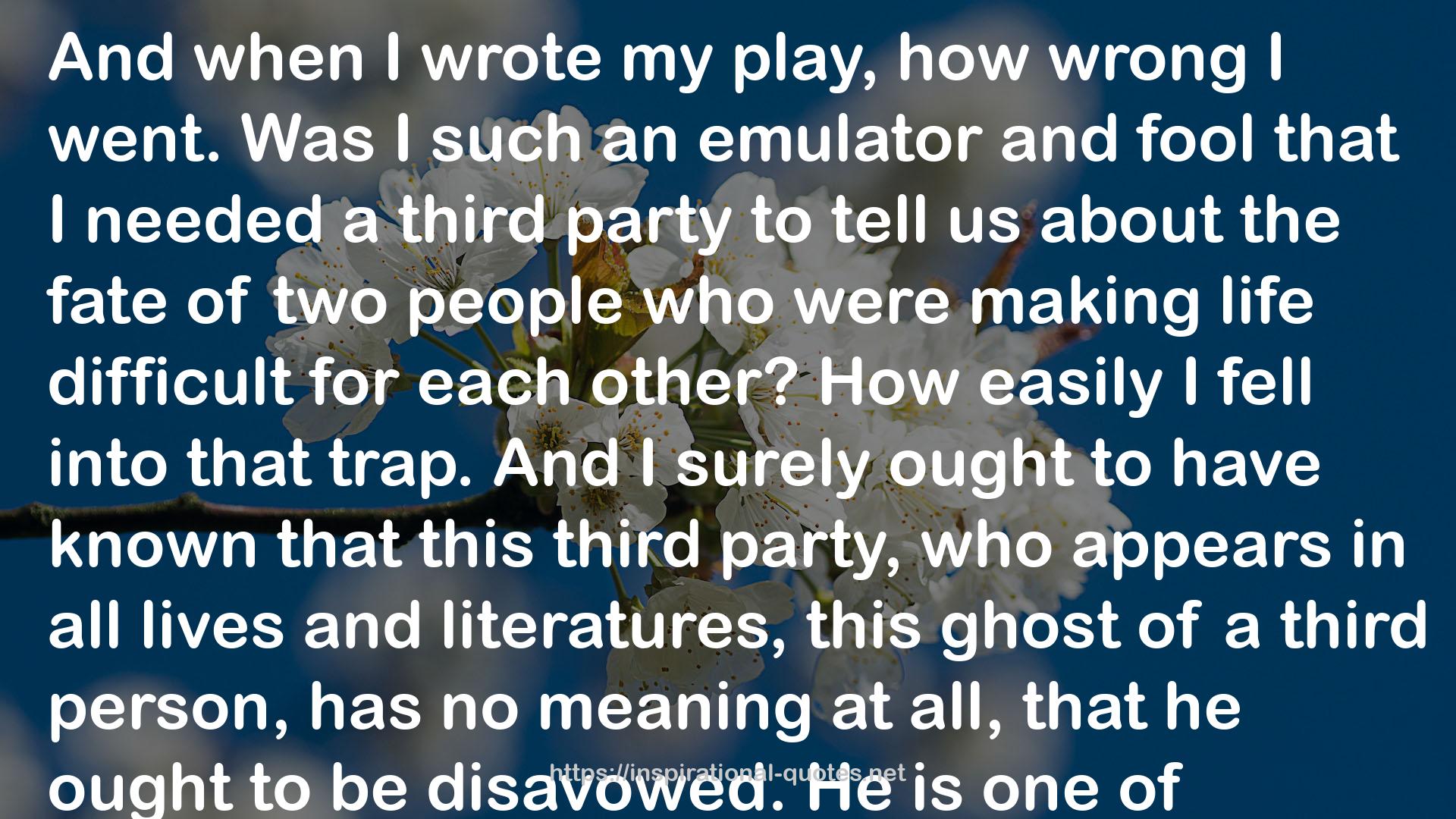" And when I wrote my play, how wrong I went. Was I such an emulator and fool that I needed a third party to tell us about the fate of two people who were making life difficult for each other? How easily I fell into that trap. And I surely ought to have known that this third party, who appears in all lives and literatures, this ghost of a third person, has no meaning at all, that he ought to be disavowed. He is one of Nature’s pretexts, for she is always at pains to distract humanity from her deepest secrets. He is the screen behind which a drama unfolds. He is the noise at the entrance to the voiceless quiet of a genuine conflict. I’m tempted to think that everyone has hitherto found it too difficult to speak about the two people at the heart of it; the third one, precisely because he is so unreal, is the easiest part of the task, anyone could write him. Right from the beginning of these dramas you notice their impatience to get to the third party, they can hardly wait for him to appear. Once he’s there, everything is fine. But how boring it is if he’s late, absolutely nothing can happen without him, everything comes to a standstill, pauses, waits. Yes, and what if they didn’t get past this pile-up, this logjam? What if, Mr Playwright, and you, the Public, who know about life, what if he were lost without trace, this well-liked man-about-town or this bumptious young person who fits into every marriage like a master-key? What if, for instance, he has been whisked off by the Devil? Let’s assume he has. You suddenly notice the artificial emptiness of theatres, they’re walled up like dangerous holes, and only the moths from the cushioned edges of the boxes tumble down through the hollow space with nothing to hold on to. Playwrights no longer enjoy the exclusive areas of town. All the prying public is looking on their behalf in the far corners of the world for the irreplaceable person who was the very embodiment of the action.
And at the same time they’re living amongst the people, not these ‘third parties’, but the two people about whom an incredible amount could be said, but about whom nothing has ever yet been said, although they suffer and get on with things and don’t know how to manage. "
― Rainer Maria Rilke , The Notebooks of Malte Laurids Brigge
